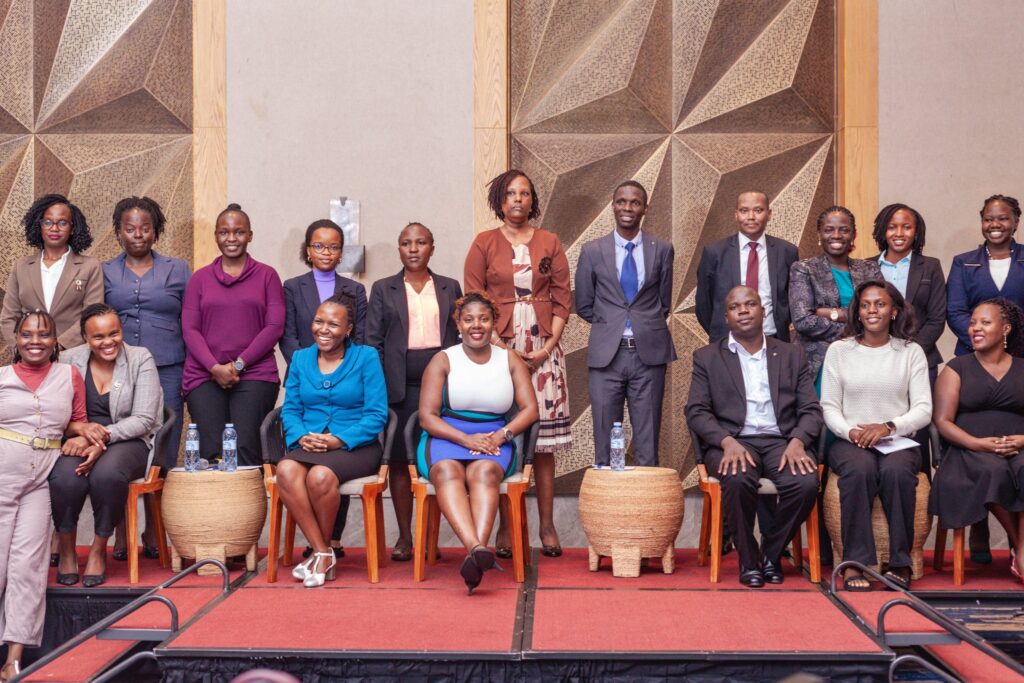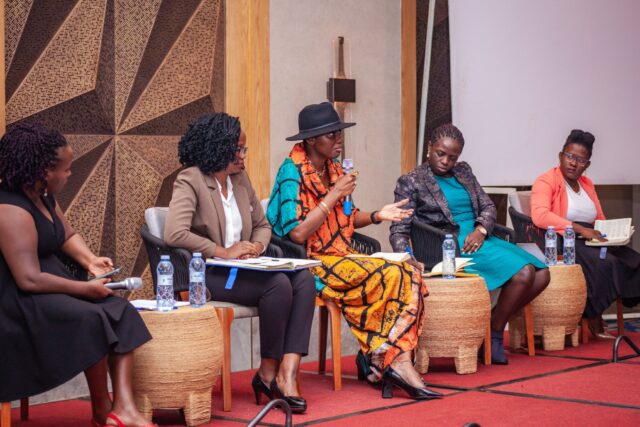
As Uganda registers more cases of maternal deaths daily due to unsafe abortions and other related complications that arise in connection with the matter, Women’s Probono Initiative (WPI) on 26/07/2024 convened a high level stakeholder colloquium on the impact of Law on access to safe abortion services for women who may need the services in Uganda.
Women’s Probono Initiative in collaboration with the Centre for Reproductive Rights ( CRR), developed a case digest on abortion in Africa and according to the digest, there are very few cases of abortion in Africa that have made it to Africa courts and in East Africa in the Cases derived from South Africa, Kenya, Rwanda, and Malawi calling for attention from the women movement.
During the colloquium that took place at Four points by Sheraton in Kampala, the Deputy Executive Director Rose Wakikona noted that they convened this conversation with justice law, in order to discuss on how the law on abortion is being implemented. She noted that however much the country lacks policy direction, there are some policies that address access to safe abortion.
She noted that post abortion care is legal and safe abortion services incase of maternal illness, free from abnormalities and where there is sexual violence, but the challenge is that these policies are not aligning with the laws since we don’t have the law that comprehensively addresses abortion.
Wakikona expressed the need for women to be educated about their right to have children when they feel they are ready and not to have children when they don’t want, and the right to raise their children in a safe environment.
According to the women’s movement talk, there are more cases of loss of lives because of women who engage in unsafe abortion due to the fact that abortion is considered to be illegal by the law in the country.
Wakikona therefore revealed that this is one of the reasons attracting women to come out to ask government to revise the law on abortion so that they can legally give women space to decide when to have children and when not to.
While closing the dialogue, the Deputy Director of the Judicial training institute His Worship Faisal Mulalira noted that the fact that the right to life is sacred, time is now than never before for, for the country to start reflecting on the issues concerning human rights surrounding the rights of reproductive health and sexuality one of them being safe abortion.
He added that access to safe maternal care and the change in the behaviours of our citizens are confronted by unwanted pregnancies resulting from rape, defilement and all other forms of sexual exploration and exploitation, thereby calling on the country to rethink the restrictive laws that criminalise abortion and all the players in assisting in this essential reproductive health right, through Advocacy and other related means to confront stigmatisation of the players in the abortion process, the need to sensitise the public about rehabilitation and to properly craft the message on line with standards and guidelines to combat morbidity and mortality rate.
Ritah Achiro from UWONET revealed that the gap in the circumstances under which abortion can be done has led to challenges such as High teenage pregnancies, alarming rates of defilement, sexual assault and other cases that are all known to the country and expressed the need for women movement to work together in advancing the rights of women and girls.
Olabukunola Williams (Buky), a Sexual and Reproductive Health and Rights Lead from Akina Mama Wa Afrika, showed the need for engaging people in communities to move the talk and highlight the need for safe abortions and it’s positive impact so that people can do it legally. This is because community support raises a significant role as people understand what is happening among themselves.
However, the Deputy Principal, Makerere School of Law Dr. Zahara Nampewo stressed that, courts must not only uphold reproductive rights and personal autonomy, but they should also go an extra mile and be ready to hold people accountable on all implications of Human rights law, such as obligation to refrain from interfering in women’s sexual reproductive health rights, the state to fulfill reproductive health rights, having social and economic programs with adequate resources like trained and equipped personnel and medicines, enabling all women to enjoy substantive equality in a comprehensive manner, among others.
“We want courts to go beyond the narrow issue of abortion and rather to enforce the rights in a holistic manner in order to ensure full enjoyment of the right to health for women.” She emphasised.
During the debate that WPI held with law students at Makerere University last year, on the topic : “The right to abortion in Uganda, Myth or Reality”, Women’s Probono Initiative Executive Director Prima Kwagala revealed that surprisingly, government recognizes that there are circumstances when a woman can have an abortion but it does not put in place the law to guide this. She added that the ministry of health provides access to post abortion care services, yet they do not provide safe abortion facilities to the women.
This colloquium was aimed at holding a dialogue on jurisprudence of abortion rights across Africa and the globe and harness lessons for Uganda, get a deeper dive into the politics of abortion service provision and to disseminate findings of case digest on abortion litigation in Africa.






